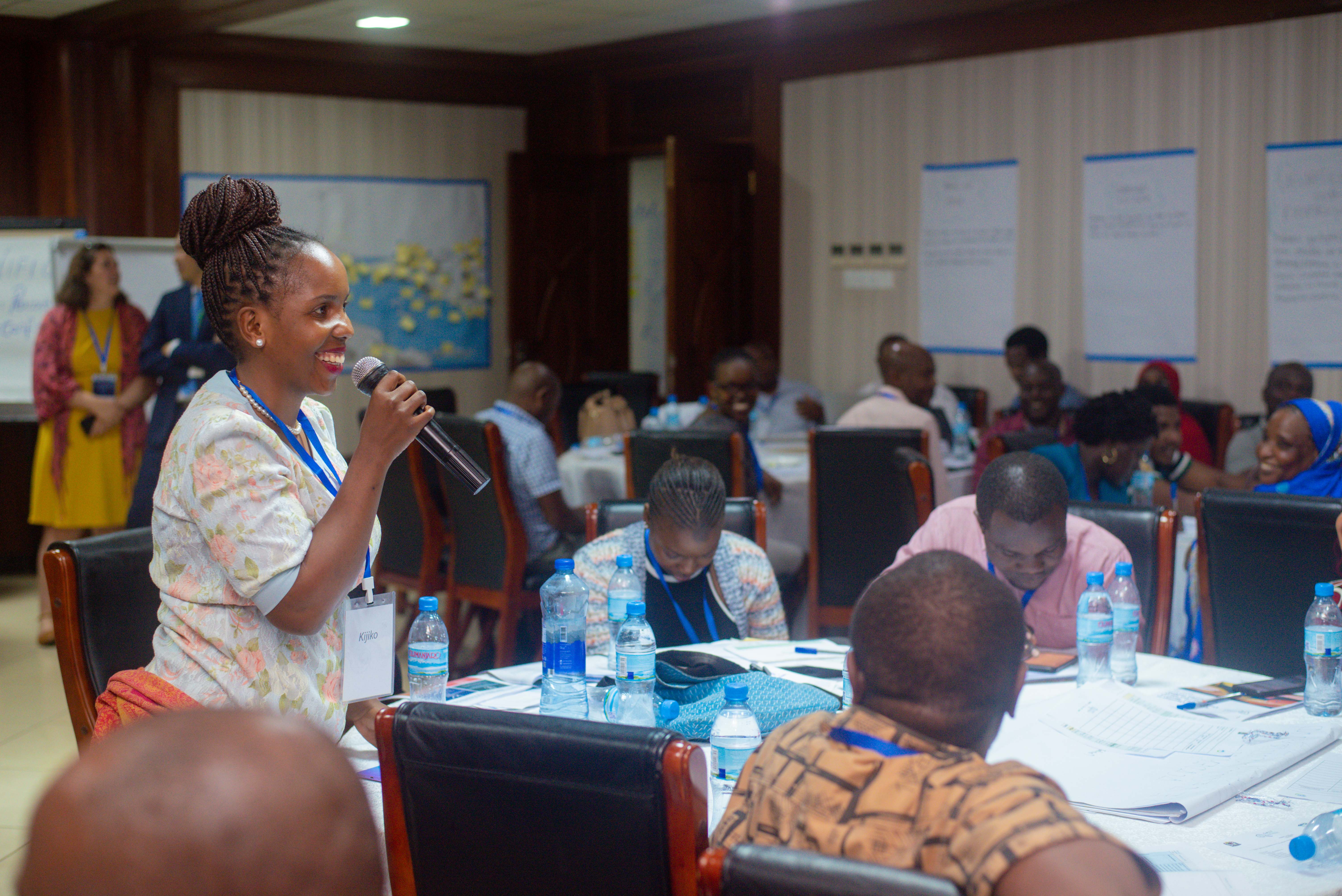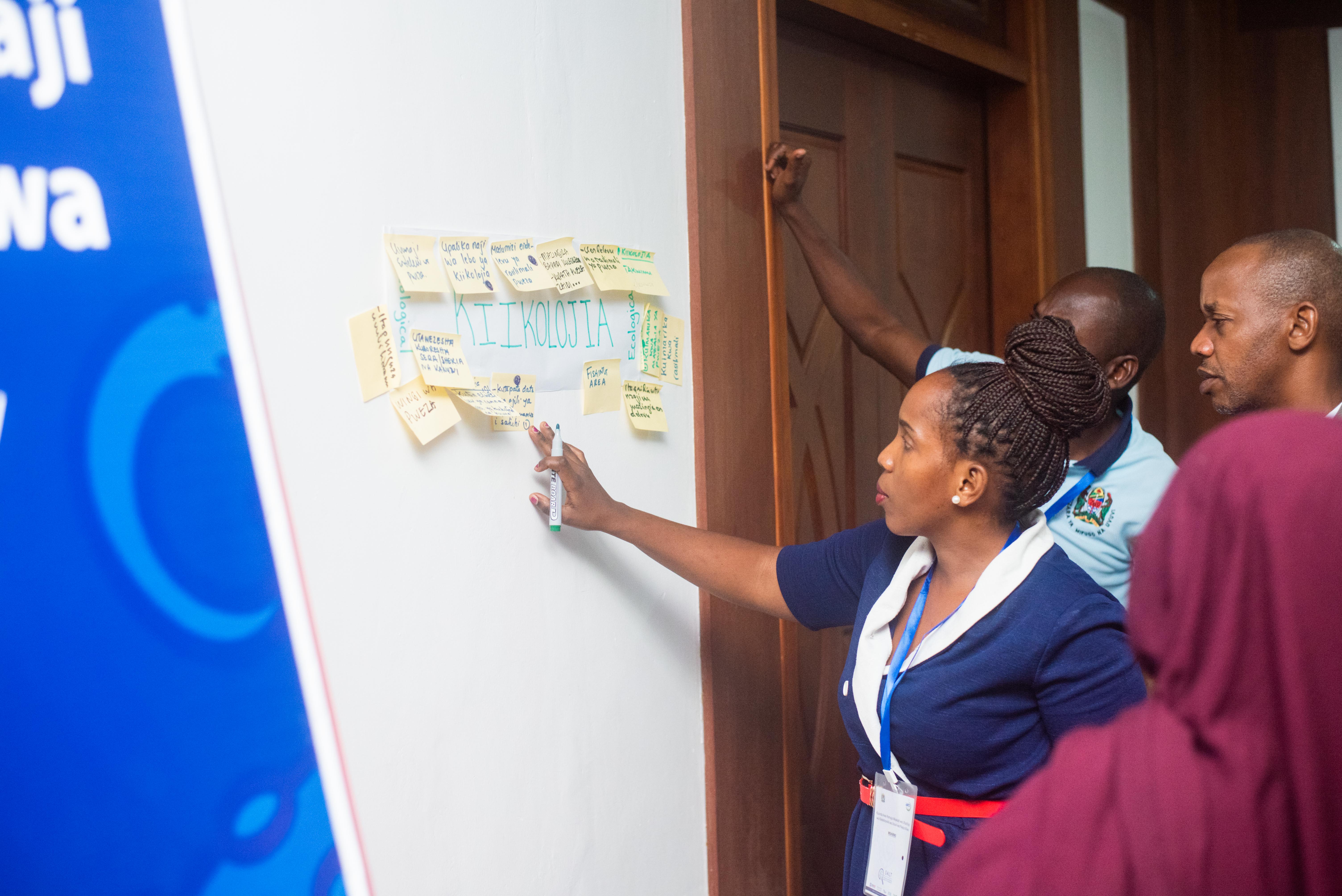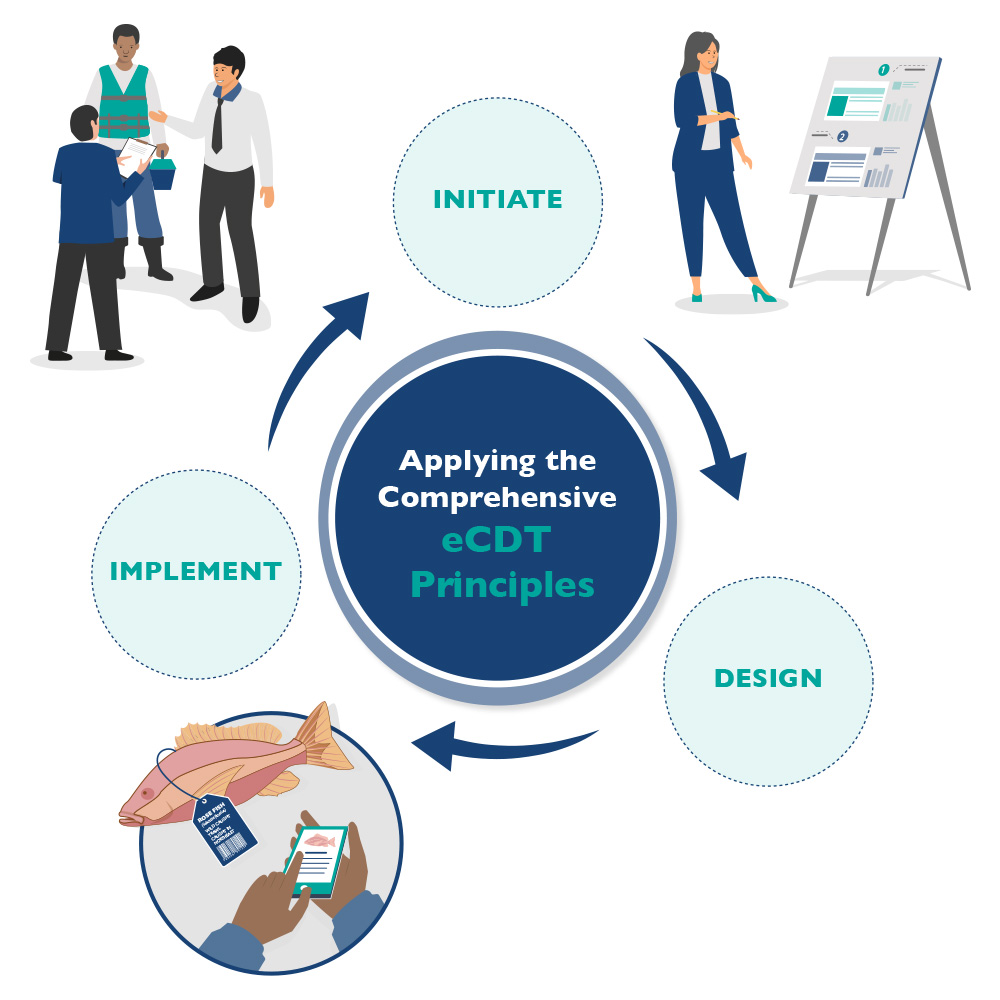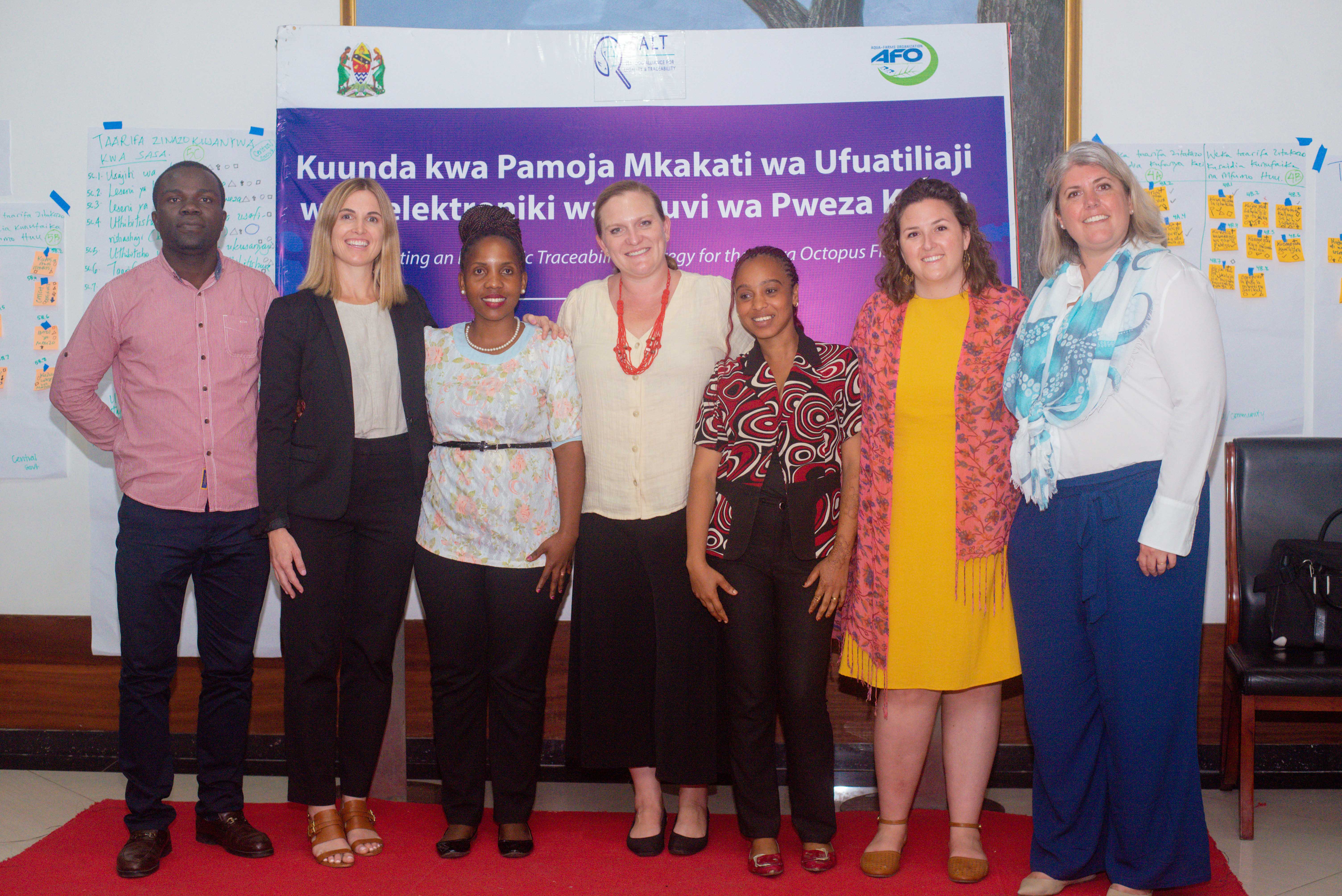In September 2022, SALT, in collaboration with Tanzania’s Ministry of Livestock and Fisheries, Aqua-Farms Organization, and technical advisor Yahya Mgawe, hosted a three day event titled “Co-creating an Electronic Traceability Strategy for the Kilwa Octopus Fishery” in Dar es Salaam, Tanzania. This meeting brought together diverse stakeholder groups within the Kilwa octopus fishery that are key for the development of an electronic catch document and traceability (eCDT) program. The outcomes from the participatory activities, in combination with the Comprehensive Traceability Principles and Pathway, will inform a strategy for eCDT design and implementation that can help meet environmental, social, and economic desires for the future of the Kilwa small-scale octopus fishery.
The intention behind this event inspired an awareness of why electronic traceability is important to the octopus fishery in Kilwa District. With participants creating a shared vision and identifying their goals and priorities whilst in the same room, they also built a network to carry out a traceability strategy for this octopus fishery, and ensured roles were understood for those involved. In the end, participants collaboratively committed to actions to complete in 100 or 1,000 days.

Women and youth (defined in Tanzania as those 35 years of age or younger) are of specific importance in the octopus fishery and have been consulted throughout this project. During the co-design event, women and youth fishers, managers, researchers and industry leaders were present to provide their perspectives and priority goals for the future. One participant, Felister Kamuli, is the acting Manager of Quality Assurance at Bahari Foods Ltd and has been working to improve traceability of their octopus products. She participated in SALT’s Planning Committee to help inform the design of the co-design event. Felister describes why traceability is important in the following video and provides her reflections on the co-design event in a Q&A with SALT.
Bahari Food's Felister Kamuli on Traceability
How was participating in the co-design event unique from other traceability efforts you’ve been a part of?
Felister: It was more engaging involving people of all calibers, fishermen, the brokers/ agents, people from the government, researchers and processing industry made it so unique and remarkable.
What was one of the most powerful activities of the co-design event for you?
Felister: The most powerful activity was to present the importance of traceability by an art, for example I remember rapping and singing that day. It was so funny!
Can you describe how you felt after the three day event?
Felister: I felt really overwhelmed after seeing a lot of women participating in the co-design event.
How do you think the organization of the co-design event will help implementation of electronic traceability in the future?
Felister: By educating a particular society working on the landing sites such as the fishermen, agents, transporters, about the importance of eCDT to their economy, nature, and welfare.

Following the event, participants left with a better understanding of traceability and a majority are interested in adopting eCDT for the Kilwa District octopus fishery. Although this project is focused on a specific region and fishery, the traceability process is adaptable to other fisheries and regions because SALT and our collaborators have grounded the activities in the Comprehensive Traceability Principles and Pathway. A majority of the effort to date has been in the Iinitiate phase of the Pathway, defining goals and objectives of the future eCDT program and prioritizing inclusive and collaborative stakeholder engagement. The information, perceptions, and desires that dedicated participants expressed during the three day co-design event will inform an eCDT program strategy for the Kilwa District octopus fishery to continue guiding stakeholders through the design and implementation phases.


